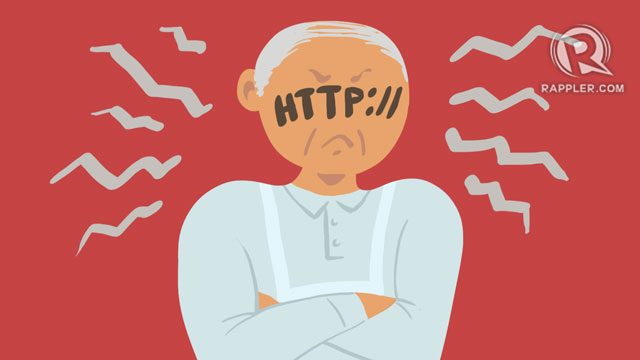SUMMARY
This is AI generated summarization, which may have errors. For context, always refer to the full article.

MANILA, Philippines – As the internet-using world gets used to having and wanting secure websites as a norm, a pro-consumer website called Comparitech looked at the personal websites of over 7,500 politicians in 37 countries worldwide to see if they were using Hypertext Transfer Protocol Secure (HTTPS) instead of HTTP to increase the security on their sites.
According to Comparitech, 60.75% of the sites surveyed around the world did not use valid Secure Socket Layer (SSL) certificates, meaning visitors’ connections to those sites were on HTTP and were neither private nor secure. (READ: The difference between HTTP and HTTPS websites)
In this survey, 13% of Philippine politicians – 44 websites out of 334 politicians counted – were said to have websites.
Of the 44 websites surveyed, Comparitech found 30 of those sites did not use HTTPS.
The report also noted which political parties had multiple insecure websites. The report said the parties Lakas, Laban ng Demokratikong Pilipino (LDP), National Unity Party (NUP), and United Nationalist Alliance (UNA) had between one and 4 members with websites that had no HTTPS protections in place.
Meanwhile, Akbayan and PDP-Laban both had two members with websites, with at least one of each having HTTPS enabled.
The importance of HTTPS and SSL
Enabling HTTPS and SSL adds protection to websites, which is especially important if you’re transmitting information through a given site, such as your personal details or financial information.
The switch to HTTPS also allows site visitors to maintain their anonymity even if they aren’t giving away any information directly.
As Google explained on the importance of HTTPS: “Although a single visit to one of your unprotected websites may seem benign, some intruders look at the aggregate browsing activities of your users to make inferences about their behaviors and intentions, and to de-anonymize their identities.”
The study’s limitations
Comparitech explained in their study the dataset, available here, was gathered from November 2018 right up to the date of publication, and that some websites may have upgraded their sites in the time between the checking of a site and the study’s publication.
In other words, some of the data provided in the dataset may no longer apply if politicians have already upgraded their site for security purposes. It might be best to ask your politicians if they’re doing their utmost to protect your data, just to be sure. – Rappler.com
Add a comment
How does this make you feel?
There are no comments yet. Add your comment to start the conversation.